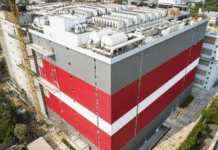New Delhi– The governments recent move to allow 100 per cent foreign direct investment (FDI) in single-brand retail under the automatic route is expected to increase the market share of organised retail in India to 10 per cent by fiscal 2020, rating agency Crisil said on Monday.
Crisil said the decision will increase the market share by almost 100 basis points from its earlier expected share growth of nine per cent by fiscal 2020, based on healthy revenue growth of 18 per cent of organised brick and mortar (B&M) retailers.
“Better operating environment for single-brand retail would also mean the pace of store additions by organised retailers will be faster than the annual 10-12 per cent Crisil had presaged earlier,” it said in a statement.
According to Crisil, the impact of relaxation in rules would be more pronounced in the apparel, luxury goods, home decor, footwear, and electronics segments, which make up around 45 per cent of the country’s organised retail revenues.
“Global single-brand retailers facing growth headwinds in their key geographies will now be more than keen to peg tent in India,” said Anuj Sethi, Senior Director, Crisil Ratings.
“And those already present could step up investments. The previous sourcing norms were a bottleneck to scaling-up of operations,” he added.
Crisil said while FDI approval under the automatic route will lower the time to commence business, the relaxation of 30 per cent local sourcing norms for the first five years by allowing inclusion of incremental sourcing for global operations will provide sufficient time for new entrants to set up and stabilise their sourcing base.
“All this will mean increase in competition for domestic organised B&M retailers,” said Amit Bhave, Director, Crisil Ratings.
“However, more foreign retailers vending their ware would also lead to sharper focus on, and improvements in, supply chain efficiencies which will benefit the sector over the medium term,” he added.
The rating agency believes that healthy growth prospects for the sector and benefits of scale and focus on profitability, will help offset the impact of higher capital spending and increasing competition on credit profiles over the medium term.






